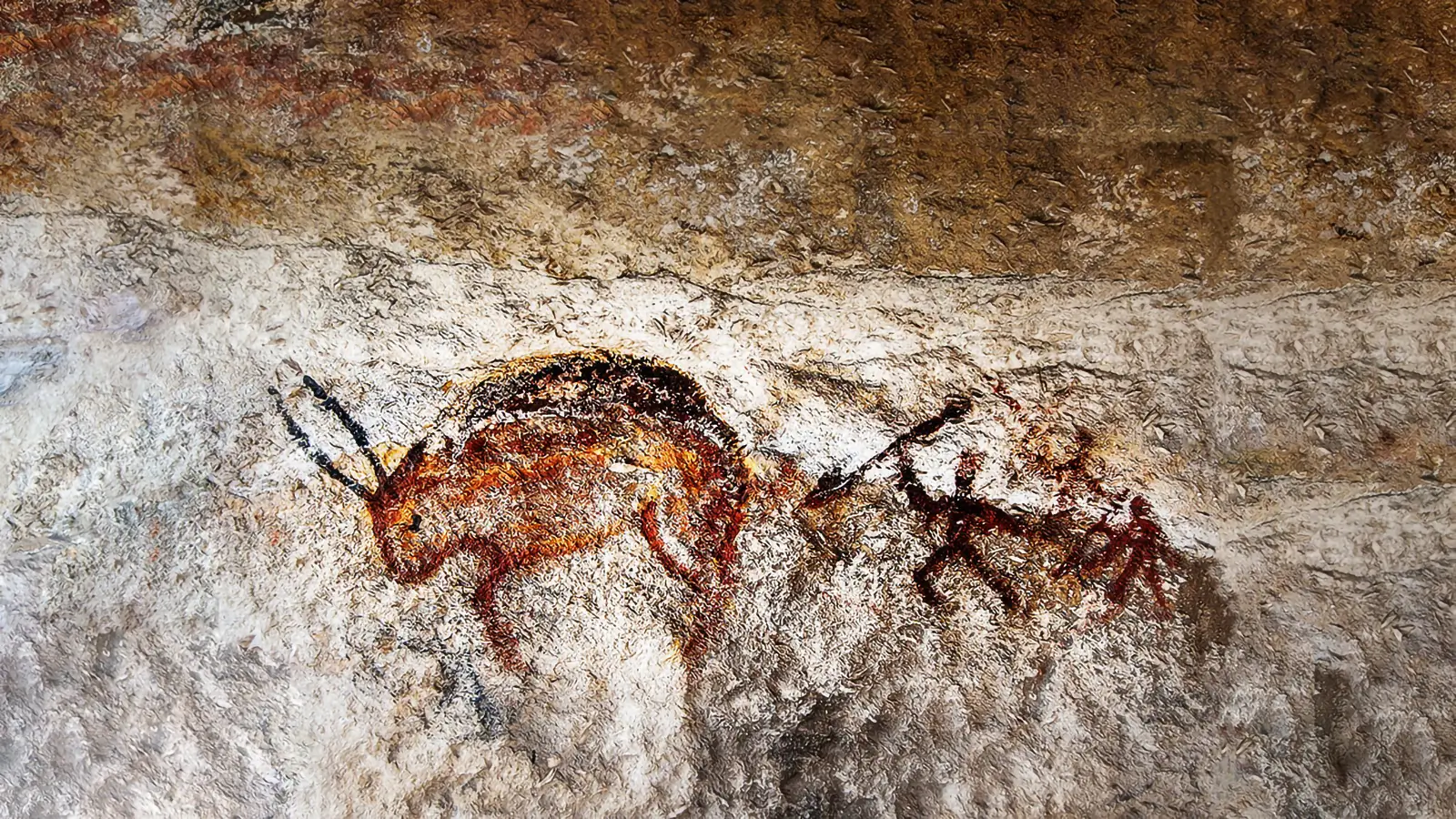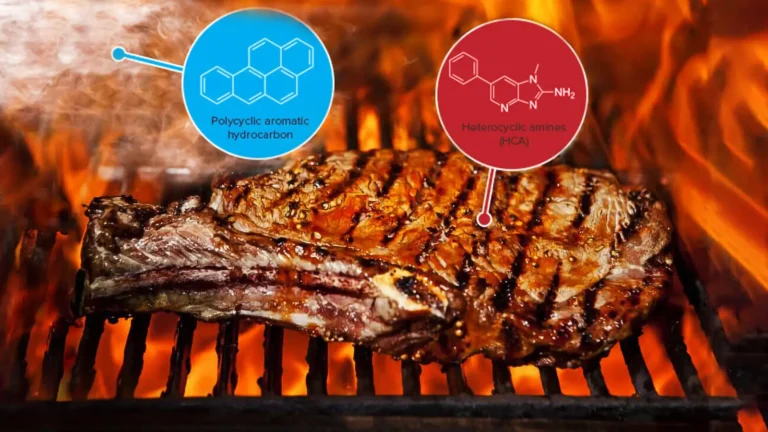Dieta mediterrânica- "Maravilha" de azeite de oliva
Comercializado como uma maravilha de azeite, a dieta Mediterrânea não tinha nada a ver com qualquer óleo de qualquer tipo, exceto na medida em que ele pode substituir a manteiga e a banha.
Milos Pokimica
Escrito por: Milos Pokimica
Revisto Clinicamente Por: Dr. Xiùying Wáng, M.D.
Actualizado em 9 de Junho de 2023A boa e velha dieta mediterrânica saudável. Comercializada como uma maravilha do azeite que não tem nada a ver com qualquer tipo de azeite, excepto na medida em que pode substituir escolhas ainda piores, como uma gordura saturada normal, como a manteiga e a banha. Foi precisamente assim que até o pai da dieta mediterrânica a viu (Chaves, 1987). Quando se vai ao pubmed.gov e se procura uma dieta mediterrânica, há cerca de 5000 resultados. A dieta mediterrânica é constituída por muitas dietas em muitos países diferentes. Pode ser marroquina, grega, espanhola, italiana ou de qualquer outro país.
Contudo, quando falamos da dieta mediterrânica, o que está implícito é a dieta na ilha de Creta na era pós Segunda Guerra Mundial. Além disso, o que vem a seguir é uma grande questão: Porque é que as doenças cardíacas eram raras no Mediterrâneo? Ou seja, na ilha de Creta, após a Segunda Guerra Mundial.
In 1948 after the war and socioeconomic collapse, the government of Greece was concerned about malnutrition and the health status of its citizens. They decided to invite the Rockefeller Foundation with the goal of undertaking an epidemiological study on the island of Crete. In 1952 impressed by low rates of heart disease Ancel Keys, the same scientist that was in charge of the Minnesota Starvation Experiment, noted the connection after researching the data between fat and especially saturated fat, and heart disease. Although at that time he did not see cholesterol as the problem because it would mean the animal products are the guilty ones. The connection between dietary fat and heart disease was observed even earlier in the 1930s and was influential on Keys’ work, but data from Crete made him write a paper about it in 1953 and made public addresses. The famous Seven Country Study was to begin five years later in 1958 to investigate Keys’ concerns (www.sevencountriesstudy.com). Na década de 1960 era uma crença comum que a gordura saturada contribui para as doenças cardíacas. A Dieta das pessoas na ilha de Creta foi um catalisador para esta investigação mais tarde. Em 1970 foi apresentado, pela primeira vez, o Estudo dos Sete Países. Agora Keys viveu até aos 100 e na altura não era muito dos radicais como as confusões de colesterol gostariam que acreditasse. Recomendava comer menos gordura, ou seja, gordura na carne e gordura em geral, como ovos (ou pelo menos gemas) e produtos lácteos, e em vez de comer mais peixe e galinha. Considerava que as frutas e legumes eram apenas alimentos complementares, e tinha um colesterol de cerca de 200. Esse número não é saudável de longe, mas ele viveu até 100. O problema era que ele era um médico do mesmo sistema que qualquer outro médico. A arteriosclerose não acontece normalmente numa idade como as confusões de colesterol gostariam que acreditássemos, devido a todo o fluxo de sangue stressante.
Arteriosclerosis is a disease, not the aging process. We can go and look at arteries and measure the blood pressure of poor people in places like Crete. Keys did not see the real truth about what was real diet on Crete. He thought it was just fat and didn’t see the problem in animal protein. Animal correlação de proteínas foi negligenciado mesmo nos gráficos. Ele baralhou a água, apontando apenas para a gordura.
No entanto, nem isso era suficiente. Mesmo isso era exagerado. Em 1966, George Campbell e Thomas L. Cleave publicaram "Diabetes, Trombose Coronária e Doença da Sacarina". Argumentavam que as doenças crónicas ocidentais, como as doenças cardíacas, as úlceras pépticas, a diabetes e a obesidade, eram produzidas por uma coisa: "A doença dos hidratos de carbono refinados". Era uma história interminável. Nunca parou até hoje. Tudo é uma mentira que é confrontada com a mentira oposta. Guerras de dietas e confusão criadas artificialmente. Foi uma boa estratégia de design que não mudou nada em 70 anos, excepto o facto de ter enredado pessoas normais em dinheiro causador de doenças, criando um ciclo maléfico de miséria. Mesmo nos tempos actuais, é a mesma velha história de manipulação. Em 2001, por exemplo, no artigo da revista Science intitulado "Nutrition: The Soft Science of Dietary Fat", Gary Taubes escreveu:
“It is still a debatable proposition whether the consumption of saturated fats above recommended levels by anyone who’s not already at high risk of heart disease will increase the likelihood of untimely death…or have hundreds of millions of dollars in trials managed to generate compelling evidence that healthy individuals can extend their lives by more than a few weeks, if that, by eating less fat.”
People 70 years later think that the Mediterranean diet is healthy because of olive oil. This is an excellent illustration of a half-truth. Italian restaurants market themselves as a healthy Mediterranean diet cuisine with spaghetti carbonara and alcohol. The death rate from heart disease in Crete at that time was more than 20 times, not 20 percent, 20 times less than in the US. We statistically see this data from places like rural China and Crete and Okinawa and on and on and see that these people’s diet is simple and similar to each other. How much stupidity do we have to have not to see the real story of what is happening? Scientists with a considerable level of education are not the stupid ones. They have six-figure annual income plus bonuses. They are the smart ones. We are not. Nutritional science is not secret deep underground military propulsion system laboratory research. There are no real debates in the field of nutrition, only purposely creating real confusion.
So what did they eat on the island of Crete in the World War 2 aftermath? The answer is the same. No meat, eggs, or dairy. Just poor people’s food like fruit and vegetables, grains, nuts, and legumes. Things that grow locally. In numbers, they ate more than 90% plant-based, and meat, fish, dairy, and egg products combined are about 7%. They did eat some of the olive oil because olives grow in Crete but that is not the olive oil diet. Or the wine diet. There is nothing healthy about wine except grapes. We would be better off just drinking raw grape juice. If we look at Greece today what is it that we think we would find? They have the number 1 score in Europe in child obesity. The Island of Crete included. As soon as the economy improves the meat, cheese, sugar, and alcohol come in a package. And smoking too. Greece has a rate of tobacco consumption above 40%. The Mediterranean diet was not a local-specific Mediterranean diet like Italian cuisine or Greek cuisine or such. It was a poverty diet without meat and eggs, and dairy, similar to diets in all poverty or war-stricken places, and industry does not like to mention this. Heart disease was a rarity in Greece. Was. Not anymore. And even in Crete at times of war, some rich people ate “normally” meaning eating meat every day instead of once in two weeks. Heart attacks were normal for them too, unlike the rest of the common people that were struck by poverty. No one today eats the real Mediterranean diet anymore. The pure Mediterranean diet of today that is predominantly plant-based is not a real whole food diet. It is dominated by white flour, the consumption of oil and salt, and alcohol. In Crete, they did not eat refined white pasta from the factory with a sauce full of extracted oil and bottles of wine. Alcohol is a known breast cancer risk factor even if we disregard inflammation and toxicity. That is not a health-promoting meal. Well, that is not a health-promoting meal if we do not compare it to the even worse standard American meal of today. So yes, the Mediterranean diet is healthier than the regular diet but not as healthy as a real natural human diet. Whole food plant-based diet.
O problema é que os alimentos normais normais não são tão saborosos como os refinados cheios de sal e óleo e açúcar so hardly anyone sticks to it. From a young age, children are given all of these chemicals we consider to be food, so we are addicted to them in childhood and have no real baseline anymore for comparison to what real human food is. That is why poor people’s diet works. If we disregard cholesterol and toxins and saturated fats that come from animal products and if we analyze the individual components of diet in Crete, we see that actually, it was not grains that were protective against heart attack. Grains, were more neutral and because they were whole food with fiber they had no effect on obesity or diabetes. Among the individual components in the Mediterranean diet consumption of greens and nuts actually, had most of the effects on lowering cardiovascular disease risk. Vegetarians that eat nuts have a lower risk of cardiovascular disease instead of those who don’t, and there are now a number of studies on this topic also. Here is one (Guasch-Ferré et al., 2013) com a conclusão: "O aumento da frequência do consumo de frutos secos foi associado a uma redução significativa do risco de mortalidade numa população mediterrânica com elevado risco cardiovascular."
As nozes têm alto teor de óleo mas também alto teor de fibras, pelo que o óleo não é imediatamente absorvido como a gordura da carne ou óleo refinado e, ao contrário da carne ou dos frutos secos, são ricos em antioxidantes e outras substâncias fitoquímicas. Um outro benefício dos frutos secos é que ao combiná-los com o óleo verde aumentará a absorção fitoquímica de produtos químicos solúveis em gordura que se encontram em vegetais já saudáveis. Não temos de engordar pouco e evitar o consumo de nozes e sementes e comer predominantemente amido. Devemos comer amido e nozes e todos os outros alimentos numa grande variedade possível. Até agora, a ciência não correlacionou o elevado consumo de sementes e nozes com qualquer doença, incluindo a obesidade, excepto em pessoas que têm alergias. Muito pelo contrário. São benéficos em quase todas as condições. As castanhas do Brasil estão cheias de selénio, e as nozes são protectoras contra o cancro, os lignanos nas sementes de linhaça são um dos químicos mais protectores contra o cancro da mama e estão também cheias de óleos ómega três para o funcionamento do cérebro. Os nossos antepassados comeram nozes e sementes cruas durante muito tempo. São os nossos alimentos naturais tanto como frutos ou grãos ou folhas jovens ou outros vegetais de folhas verdes.
A dieta saudável é a que tínhamos evoluído e adaptado à alimentação. É isso mesmo.
Referências:
- Keys A. (1987). Olive oil and coronary heart disease. Lancet (Londres, Inglaterra), 1(8539), 983–984. https://doi.org/10.1016/s0140-6736(87)90337-0
- Guasch-Ferré, M., Bulló, M., Martínez-González, M. Á., Ros, E., Corella, D., Estruch, R., Fitó, M., Arós, F., Wärnberg, J., Fiol, M., Lapetra, J., Vinyoles, E., Lamuela-Raventós, R. M., Serra-Majem, L., Pintó, X., Ruiz-Gutiérrez, V., Basora, J., Salas-Salvadó, J., & PREDIMED study group (2013). Frequency of nut consumption and mortality risk in the PREDIMED nutrition intervention trial. BMC medicine, 11, 164. https://doi.org/10.1186/1741-7015-11-164
Publicações Relacionadas
Você tem alguma dúvida sobre saúde e nutrição?
Eu adoraria ouvir de você e respondê-las em meu próximo post. Agradeço sua contribuição e opinião e espero ouvir de você em breve. Eu também convido você a siga-nos no Facebook, Instagram e Pinterest para mais conteúdos sobre dieta, nutrição e saúde. Pode deixar um comentário e ligar-se a outros entusiastas da saúde, partilhar as suas dicas e experiências e obter apoio e encorajamento da nossa equipa e comunidade.
Espero que este post tenha sido informativo e agradável para si e que esteja preparado para aplicar os conhecimentos que aprendeu. Se achou este post útil, por favor partilhá-lo com os seus amigos e familiares que também possam beneficiar com isso. Nunca se sabe quem poderá precisar de alguma orientação e apoio no seu percurso de saúde.
– Você Também Pode Gostar –

Aprender Sobre Nutrição
Milos Pokimica é médico de medicina natural, nutricionista clínico, escritor de saúde e nutrição médica, e conselheiro em ciências nutricionais. Autor da série de livros Go Vegan? Revisão de Ciênciaopera também o website de saúde natural GoVeganWay.com
Medical Disclaimer
GoVeganWay.com traz análises das pesquisas mais recentes sobre nutrição e saúde. As informações fornecidas representam a opinião pessoal do autor e não pretendem nem implicam substituir aconselhamento, diagnóstico ou tratamento médico profissional. As informações fornecidas são apenas para fins informativos e não se destinam a servir como substituto para consulta, diagnóstico e/ou tratamento médico de um médico ou profissional de saúde qualificado.NUNCA DESCONSIDERE o CONSELHO MÉDICO PROFISSIONAL OU adiar a BUSCA de TRATAMENTO MÉDICO por causa DE ALGO QUE TENHA LIDO OU ACESSADO por MEIO de GoVeganWay.com
NUNCA APLIQUE QUAISQUER MUDANÇAS de estilo de VIDA OU QUALQUER MUDANÇA COMO UMA CONSEQUÊNCIA DE ALGO QUE TENHA LIDO NO GoVeganWay.com ANTES de CONSULTORIA de LICENÇA MÉDICA.
No caso de uma emergência médica, ligue para o médico ou para o 911 imediatamente. GoVeganWay.com não recomenda ou endossa qualquer específicos, grupos, organizações, exames, médicos, produtos, procedimentos, opiniões ou outras informações que podem ser mencionadas dentro.
Sugestões do Editor –
Milos Pokimica é médico de medicina natural, nutricionista clínico, escritor de saúde e nutrição médica, e conselheiro em ciências nutricionais. Autor da série de livros Go Vegan? Revisão de Ciênciaopera também o website de saúde natural GoVeganWay.com
Artigos Mais Recentes -
Planta De Notícias Com Base Em
-
7 Unusual Plant-Based Breakfasts To Try In 2025
on Maio 5, 2025
-
NYC Crowned Best US City For Vegans In 2025
on Maio 5, 2025
-
Regular Chicken Consumption Linked To Elevated Cancer Risk, Says Study
on Maio 4, 2025
-
Sheet Pan Crispy Black Pepper Tofu – With 34g Of Protein
on Maio 4, 2025
-
Beyond Meat Launches New Unbreaded Vegan Chicken Pieces
on Maio 3, 2025
-
From Butter To Goat’s Cheese: 9 Homemade Vegan Dairy Recipes
on Maio 3, 2025
-
12 Vegan Family Dinner Ideas
on Maio 3, 2025
Superior De Saúde De Notícias — ScienceDaily
- A long and ongoing look at the secrets of human longevity and healthy agingon Maio 5, 2025
Researchers participating in the Cilento Initiative on Aging Outcomes or CIAO study will gather in Acciaroli (Pollica-Cilento) Salerno, Italy to review a decade of work and plan their next steps. Launched in 2016, the CIAO study seeks to identify key factors (biological, psychological and social) that promote healthy aging and extreme longevity.
- Gorilla study reveals complex pros and cons of friendshipon Maio 5, 2025
Friendship comes with complex pros and cons — possibly explaining why some individuals are less sociable, according to a new study of gorillas.
- Ancient Andes society used hallucinogens to strengthen social orderon Maio 5, 2025
Snuff tubes uncovered at Chavin de Huantar in Peru reveal how leaders used mystical experiences to cement their power.
- Children as young as five can navigate a ‘tiny town’on Maio 5, 2025
Neuroscientists are developing methods to map the brain systems that allow us to recognize and get around our world.
- PTSD patients show long-term benefits with vagus nerve stimulationon Maio 5, 2025
In a recent clinical study, patients with treatment-resistant post-traumatic stress disorder were symptom-free up to six months after completing traditional therapy paired with vagus nerve stimulation.
- Making virtual reality more accessibleon Maio 5, 2025
Researchers have created a method that makes virtual reality (VR) more accessible to people with mobility limitations.
- Black tea and berries could contribute to healthier agingon Maio 5, 2025
Higher intakes of black tea, berries, citrus fruits and apples could help to promote healthy aging, new research has found.
PubMed, #vegan-dieta –
- Dietary Adaptation of Non-Heme Iron Absorption in Vegans: A Controlled Trialon Maio 5, 2025
Non-heme iron, mainly from plant foods, is theoretically less bioavailable than heme iron from animal food, which might increase the risk of iron deficiency in vegans. This study aimed to evaluate acute changes in plasma iron levels following non-heme iron intake in vegans compared with omnivores and to explore the mechanisms regulating these changes. Twenty-seven participants (18-30 years old) were divided into vegans and omnivores. After baseline measurements (body composition, blood […]
- Vegan beware! Allergenic potential of legumeson Abril 30, 2025
CONCLUSION: The increased consumption of legumes in the context of a vegan diet is bringing a wider range of plant-based foods into focus, which may have potentially allergenic properties. An increase in allergic reactions to legumes is to be expected. Precise molecular IgE diagnostics are crucial to be able to assess the risk of severe reactions.
- Body and Fitness-related Shame Helps Explain the Association Between Internalized Weight Bias and Orthorexia Symptoms among North American Female Yoga Professionalson Abril 30, 2025
CONCLUSIONS: Findings contribute to the growing scholarship recognizing orthorexia’s links with harmful diet culture among yoga professionals potentially reflecting: 1) regulating internal body- and fitness-related shame stemming from IWB and 2) perceptions of modeling “positive” body image for students and clients who may be at risk. Results call for increased collaborative outreach efforts to identify appropriate interventions to effectively target these public health concerns within the…
- Desensitization for Vitamin B12 Hypersensitivity and How to Do Iton Abril 29, 2025
Vitamin B12 is the common name for a group of cobalamins, which are cobalt corrines. Cobalamins are water-soluble B vitamins. Vitamin B12, as a coenzyme of various enzymes, is an essential component of many key metabolic processes in the body. Vitamin B12 deficiency causes dysfunction of various organs and systems in the body, including the central nervous system. Humans, like other animals, are unable to synthesize cobalamin. This vitamin must be supplied with a balanced diet. The only […]
- Effects of lacto-vegetarian and vegan diets on glycemic responses and metabolite profiles in healthy adults: A randomized trial using continuous glucose monitoring and targeted metabolomicson Abril 29, 2025
CONCLUSIONS: Our pilot CGM data suggest a lacto-vegetarian diet may offer better glycemic control, potentially explained by our preliminary metabolomics findings. The increased Phe observed in the vegan group may be explained by a hypothetical mechanism in which higher glucose induces oxidative stress, whereas the increased C2 from dairy in the lacto-vegetarian group may protect against oxidative stress, contributing to lower glucose concentrations. However, larger, longer-term studies with […]
Postagens aleatórias –
Postagens em destaque –

Últimas do PubMed, #dieta baseada em vegetais –
- Dietary Adaptation of Non-Heme Iron Absorption in Vegans: A Controlled Trialpor Miguel López-Moreno on Maio 5, 2025
Non-heme iron, mainly from plant foods, is theoretically less bioavailable than heme iron from animal food, which might increase the risk of iron deficiency in vegans. This study aimed to evaluate acute changes in plasma iron levels following non-heme iron intake in vegans compared with omnivores and to explore the mechanisms regulating these changes. Twenty-seven participants (18-30 years old) were divided into vegans and omnivores. After baseline measurements (body composition, blood […]
- Effects of a Plant-Based Diet During the First Month of Feeding on Alevin Rainbow Trout (Oncorhynchus mykiss) in the Development of Tongue Sensory System Regulating Feeding Behaviorpor Maud Martinat on Maio 5, 2025
Taste perception is essential for animals to detect nutrients, providing critical dietary information necessary for growth and survival. Since the early growth performance of alevin rainbow trout (Oncorhynchus mykiss) can be affected by food intake influenced by terrestrial ingredients without fish meal and fish oil, our study aimed to evaluate the role of taste receptors in nutrient detection and the associated signaling pathways leading to central nervous system activation in the regulation […]
- Feasibility and Efficacy of a Plant-Based Nutrition Intervention for Type 2 Diabetes in a Primary Care Settingpor Vanita Rahman on Maio 5, 2025
Objective: To determine the feasibility and efficacy of a plant-based nutrition intervention for type 2 diabetes in a primary care setting. Methods: Adults (n = 76) with type 2 diabetes were enrolled in a self-paid, online nutrition intervention program between August 2023 and September 2024. All participants were advised to attend weekly group classes and follow a plant-based diet for 12 weeks. Body weight, medication usage, HbA(1c,) and cholesterol levels were assessed at baseline and at 12…
- Lycopene Supplemented Mediterranean Diet Ameliorates Experimental Autoimmune Encephalomyelitis (EAE) in Mice and Changes Intestinal Microbiomepor Tutku Atuk Kahraman on Maio 5, 2025
This study aimed to determine the effects of the Mediterranean diet (MD) and lycopene on the development of EAE and on inflammatory markers. In the 43-day study, 72 female C57BL/6 mice were randomly divided into eight groups according to whether they were EAE or naive (control) mice, fed a Western diet or a MD, and whether they received lycopene. During the study, mice were fed ad libitum, and lycopene groups were given 10 mg/kg/day lycopene per mouse every other day for 28 days in oral […]
- Regulation of apocarotenoids for quality improvement and biofortification of horticultural cropspor Lihong Liu on Maio 4, 2025
BACKGROUND: Agro-food production and consumption impact climate change and human health. Bioactive secondary metabolites in horticulture crops make them an indispensable part of environmentally sustainable and healthy diet. Among them, apocarotenoids from carotenoid degradation are promising in promoting a preference for plant-based foods over other metabolites.
- Identifying and characterizing shared and ethnic background site-specific dietary patterns in the Hispanic Community Health Study/Study of Latinos (HCHS/SOL)por Roberta De Vito on Maio 4, 2025
CONCLUSIONS: The BMSFA successfully captured sources of dietary homogeneity and heterogeneity among US Hispanic/Latino adults across ethnic backgrounds and study sites. The study highlighted the crucial role of nativity on DPs.



















